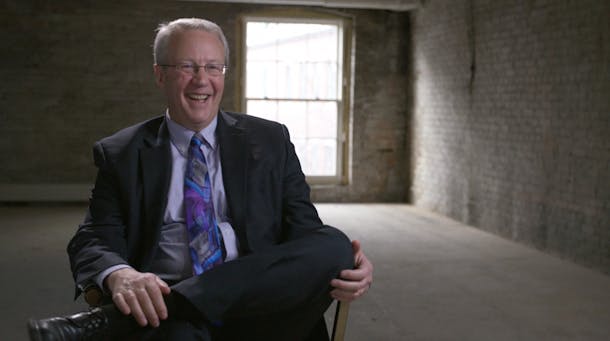Grow
B Corp companies merge profit and purpose

To be a B Corp is to be committed to the planet and its people. Here’s how your company can be a force for good, too.
Whether you’re building software that helps other businesses do their best work or creating goods and services that improve the day-to-day lives of your customers, your company has the power to make things better for your target market.
But as more founders and companies are realizing, it doesn’t have to stop there. It’s quite possible — and good for business — to serve your customers while also positively impacting the lives of your own employees, the public at large, and future generations.
To help companies operate in a socially, economically, and environmentally responsible manner, there’s B Corp Certification. To be a B Corp is to be committed to the planet and its people. It signifies your company doesn’t solely revolve around revenue; rather, you’re merging profit and purpose.
In this article, we’re cutting to the chase so you can join B Corps’ ranks. Starting off, we’ll provide a further explanation of what B Corp means and discuss the ins and outs of the certification process, including specific B Corp requirements. We’ll then spotlight a handful of B Corps and discuss how they’ve benefitted post-certification.
What is a B Corp?
The “B” in B Corp stands for “Benefit,” and companies that opt to become certified B Corps do just that: Provide benefit. More specifically, B Corps are purpose-driven, for-profit companies that have been verified by B Lab — the nonprofit creator of the B Corp Certification — to meet the highest of social and environmental standards.
As stated by B Lab, “Society’s most challenging problems cannot be solved by government and nonprofits alone.” That’s why, cooperatively, B Corps are using business growth to reduce inequality, quash financial hardship, and nurture a green, sustainable planet.
By making sure their company documents reflect their values and by prioritizing equitable policies that improve the lives of the many and not just the few, certified B Corps are redefining what it means to be a modern-day company.
B Corp Requirements: Three steps to becoming a certified B Corp
To join the 3,500 company-strong community of B Corps — the majority of which are small companies — you need to tackle what B Lab calls the three pillars of certification requirement: assessment, legal, and verification.
Note: Don’t expect to become B Corp certified overnight. Between preparation and the three pillars themselves, the entire process of B Corp certification could take anywhere from around four months to a year.
1. Assessment
Prospective B Corps must first fill out the “B Impact Assessment” — an online quiz of approximately 200 questions that provides a picture of how a company has been run over the last 12 months.
Although all assessments have questions regarding governance, workers, the environment, and the wider community, the exact ones you’ll answer depend on your company’s size and industry.
Generally, the assessment takes between one to three hours to complete. To get a sense of the type of questions you could be asked, here are several sample questions.
Even if you don’t initially meet the 80-point assessment score needed for certification, the assessment process allows you to gut check your company’s internal practices and priorities.
As Elissa Foster, Head of Product Environmental Impact at Patagonia, said: “The Assessment provided a mechanism for Patagonia to conduct a comprehensive assessment of our current social and environmental programs.” If Patagonia finds the assessment alone useful, other companies striving to do good surely will, too.
While filling out the assessment is technically free, there is a cost to become B Corp certified. In the U.S., the initial assessment submission fee is $150 — in other parts of the world, like the U.K., it’s £250 plus VAT, and in continental Europe, it’s €250. (Once certified, B Corps then pay tiered, annual certification fees based on gross annual revenue.)
2. Legal
Hopeful companies must adopt B Corp’s legal framework by updating their governing documents and company by-laws. Depending on the state or country your business operates in, you may need to alter your corporate structure to a benefit corporation structure or equivalent as well.
The most fundamental change relates to how a company defines a “stakeholder.” In legal documents, B Corp companies must define the stakeholders as employees, customers, suppliers, the community, and the environment, on top of shareholders. Essentially, this means B Corp companies consider how their actions affect everybody, as opposed to only investors and customers.
It’s also important to note that many of these changes safeguard the company’s values, even when influential figures — like new owners or investors — enter the fold. If your company is interested in attaining mission-aligned investment, these amendments to your company’s legal documents will help streamline the process.
For more on the B Corp legal requirements, click here.
3. Verification
After submitting the assessment, a B Lab analyst verifies whether your company has achieved the required 80 points out of 200 to become certified.
Don’t be alarmed if the analyst reaches out to schedule an assessment review: It’s often part and parcel of the process, as it allows the analyst to clear up any confusion. You’ll also likely be asked to supply accompanying documentation and to undergo background checks.
Verification is the lengthiest step of the process, and it can take several weeks to several months. Due to the recent influx of companies seeking B Corp certification, the wait time is likely at least a few months for everybody — especially larger companies.
If the analyst determines your company is B Corp worthy, you’ll be given a company profile page in the esteemed B Corp database, gain access to the B Corp stamp for marketing materials and products alike, and, most importantly, join a forward-thinking community that’s holding itself accountable for making the world better.
The benefits of B Corp certification
According to research by Suntae Kim and Todd Schifeling, two strategic management academics, companies become B Corps for two primary reasons: to prove they’re “truly socially and environmentally responsible” and to help undo business-induced damage.
But being a B Corp isn’t just good for the world — it’s also good for business and comes with a few additional advantages. If you’re still asking, “Is B Corp certification worth the effort?”, read on for specifics of the compelling business case for becoming a B Corp.
The ability to attract more talent
B Corps are 81% more likely to have transgender-inclusive healthcare, are 45% more likely to have Diversity & Inclusion training, and outperform ordinary companies by 15% when it comes to natural resource conservation, among other impressive stats.
By being transparent about your purpose and values and implementing progressive initiatives and employee practices, your company will stand out in the eyes of talent wanting to work with value- and purpose-oriented employers.
Strengthened supply chains
The assessment (and reassessment) process encourages companies to scrutinize their supply chains and to work with others who are taking social and environmental responsibility seriously.
B Corp certified Seventh Generation — creators of eco-friendly household and body products — even penned a Supplier Code of Conduct in 2013 that featured “social and environmental standards that collaborating companies must meet or pursue” to screen suppliers, vendors, and partners.
In 2015, after strengthening their supply chain partnerships, Seventh Generation generated over $200m in annual revenue and was later acquired by Unilever in 2016 as part of their portfolio expansion.
Improved consumer response
The vast majority (83%, in fact) of millennial consumers want to buy from companies whose values align with their own. As more and more folks want companies to be value- and action-led, there’s no better way to prove your dedication to addressing pervasive issues and creating a more ethical future generation of businesses than with B Corp Certification.
To boot, savvy consumers who are wary of “greenwashing,” or empty, hollow business statements regarding social justice, will recognize that your business is capable of walking the walk rather than just talking the talk.
There’s another thing that certified companies — whether they’re new or veteran B Corps — find particularly valuable: the community aspect.
Support from B Corps’ purposeful community
As a B Corp, you’re among friends — and B Lab has established physical and digital ways for members to connect and grow:
The B Hive, for instance, is an online one-stop shop where members can share best practices.
#WeTheChange, meanwhile, is a principles-based and action-focused collaborative of women B Corp leaders aiming to change the systems and structures that disproportionately affect historically marginalized people.
There’s also the Climate Collective, a group of leaders using their platforms to advocate for regenerative economic models and climate-friendly business practices.
Connecting with members of the B Corp community is something that took COOK — a frozen foods manufacturer and retailer in the U.K. — by surprise.
Since 1997, COOK has believed there’s a better approach to business than pursuing profit at all costs, and, in 2013, they became one of the U.K.’s first B Corps. Although they agreed with the B Corp ethos, they weren’t sure if they’d gel with the rest of the community, as they hadn’t ever met another B Corp.
This changed when they traveled to their first Champions Retreat in Boulder, Colorado. “The four senior team members who attended enjoyed two of the best days of their working lives,” said Co-founder Edward Perry in The B Corp Handbook. “The sense of shared purpose was overwhelming.”
Another company pleasantly surprised by the B Corp community is Mightybytes, a Chicago-based and LGBTQ+-owned digital agency that helps cause-driven clients to grow. By simply talking with fellow B Corps, they’ve been able to make connections and grow their client base, all while becoming a better company in the process.“
You often spend more time talking about what each company is doing within the community and how you’re working toward being a better company than you do actually selling your products or services,” said founder Tim Frick to the authors of The B Corp Handbook. “This builds trust, which in turn drives ideas, which leads to innovation and sharing, which builds community, which generates leads and referrals. Everyone wins.”
To join COOK and Mightybytes — in addition to thousands of other companies like Patagonia, Sunrise Treatment Center, and Change.org — as a member of the B Corp community, begin your B Impact Assessment today.



